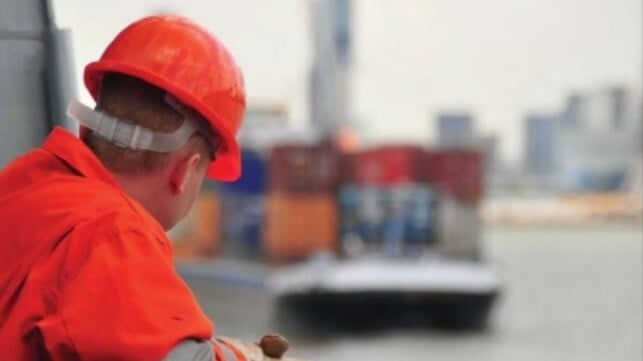Industry Advises Philippines on Training as EU Considers Crew Ban

The shipping community is rallying to the support of Filipino seafarers after it came out last month that due to training concerns, the European Union was considering banning Filipinos from working on EU-registered ships. Responding to a recommendation from the Philippines’ new president Ferdinand Marcos Jr., organizations representing seafarers, shipowners, and other maritime employers signed a memorandum of understanding with the Philippines’s Department of Migrant Workers to form the International Advisory Committee on Global Maritime Affairs (IACGMA).
The formation of the committee follows a meeting in December where shipping industry leaders met with President Marcos and he discussed the establishment of the new advisory board. The government is working to respond to criticism regarding the training and lack of responsiveness to long-standing issues identified in audits of training programs in the Philippines. As one of the government’s responses, President Marcos proposed a group to be made up of employers, shipowners, and unions and the International Labour Organisation (ILO) to give expert advice on major maritime issues affecting Filipino seafarers.
The European Maritime Safety Agency (EMSA), according to a report in the German media, published a report in 2022 updating a list of deficiencies the agency believes exist in the current training for Filipino seafarers. EMSA has been citing deficiencies in the training protocols since 2006 with the government of the Philippines promising to address the issues identified. According to the report, the EMSA specified that the training and certification by Philippine maritime education institutions fell short of the guidelines mandated by the International Convention on Standards of Training, Certification, and Watchkeeping for Seafarers. If the European Commission moves forward, a ban would go into effect which would impact future contracts and new seafarers from the Philippines from working on EU-registered ships.
“The Philippine government through its Department of Migrant Workers (DMW) welcomes the participation of well-respected industry associations and leaders from the global shipping industry in developing our roadmap to a just transition as well as boosting the global competitiveness of Filipino seafarers across the globe,” said Migrant Workers Secretary Susan Ople. The government said the creation of the committee solidifies the shipping industry and the Philippines government’s commitment to ensuring the welfare of its seafarers and finding solutions to the challenges.
Key aims of the initiative include contributing to the provision of appropriate training to the country’s seafarers in compliance with the Standards of Training, Certification and Watchkeeping (STCW) Convention. The committee will also work to address concerns regarding “ambulance chasing and unfair labor practices, and on issues related to the employability of Filipino seafarers overseas,” according to the announcement.
“ECSA welcomes the establishment of the IACGMA,” said Sotiris Raptis, Secretary General of the European Community Shipowners’ Associations. “Filipino seafarers play a crucial role in EU shipping and in keeping European trade moving. By engaging in the International Advisory Committee together with our industry partners, ECSA strives to be a strategic partner to the Philippines and facilitate a productive dialogue with the EU institutions on matters of key importance such as seafarers’ qualifications, training, and certification.”

that matters most
Get the latest maritime news delivered to your inbox daily.
International Chamber of Shipping Secretary General Guy Platten highlighted the critical role Filipino seafarers play in the global shipping industry. Platten reported that Filipino seafarers make up “a huge 14 percent of the global seafarer workforce.” Similarly, the United Nations Conference on Trade and Development estimates between 380,000 and 400,000 Filipinos work in various positions at sea.
The Philippines government uses private educational institutions to provide seafarer training for certifications. The ECSA has repeatedly cited deficiencies in the training protocols. The government insists that it has been responding to the issues identified by the Europeans. The European Commission was expected to take up the report and its recommendations during the first quarter of 2023.
